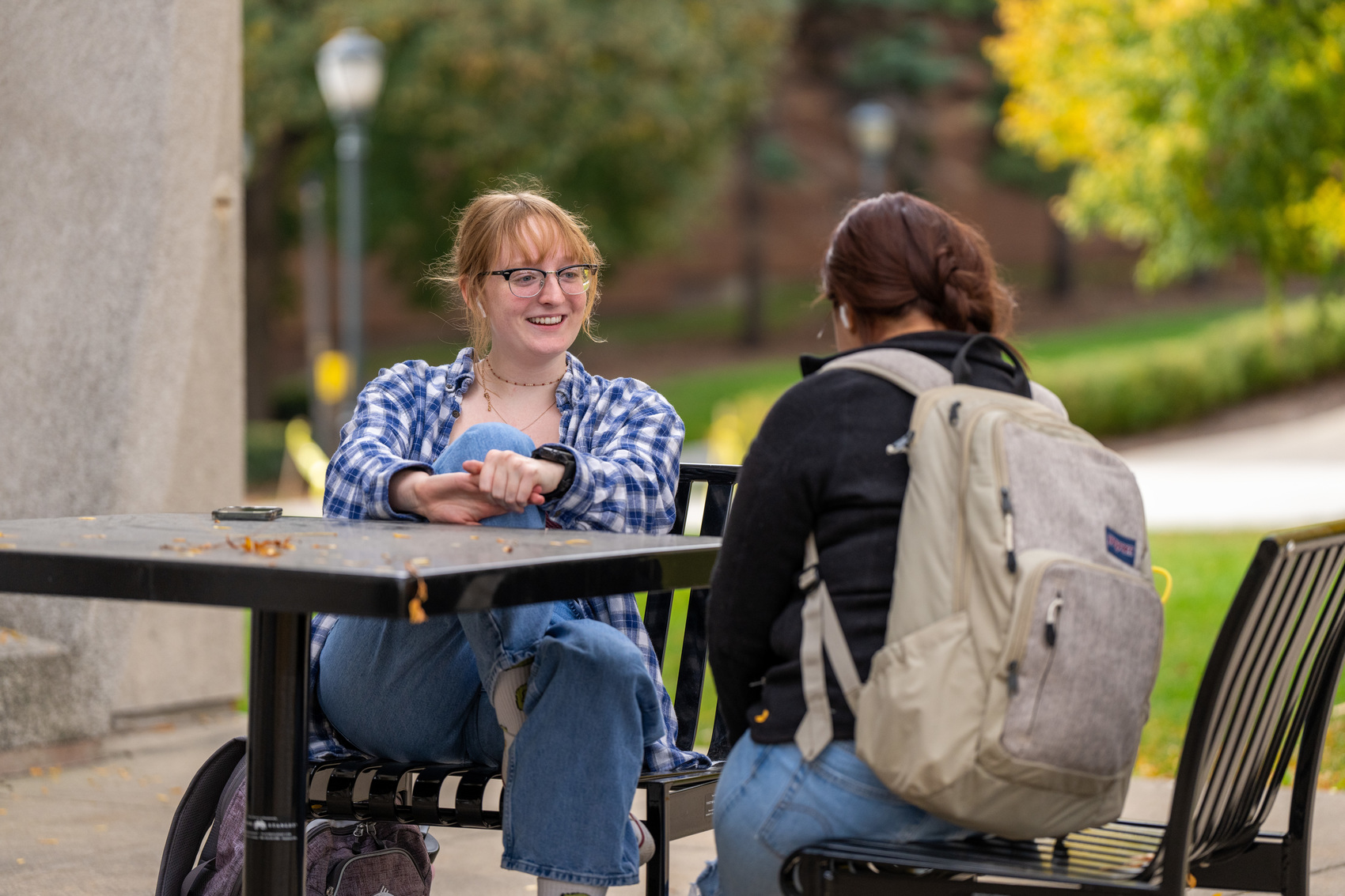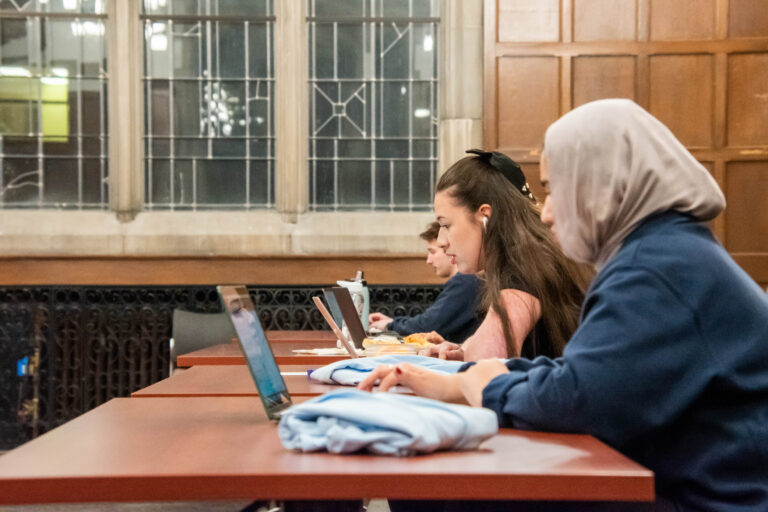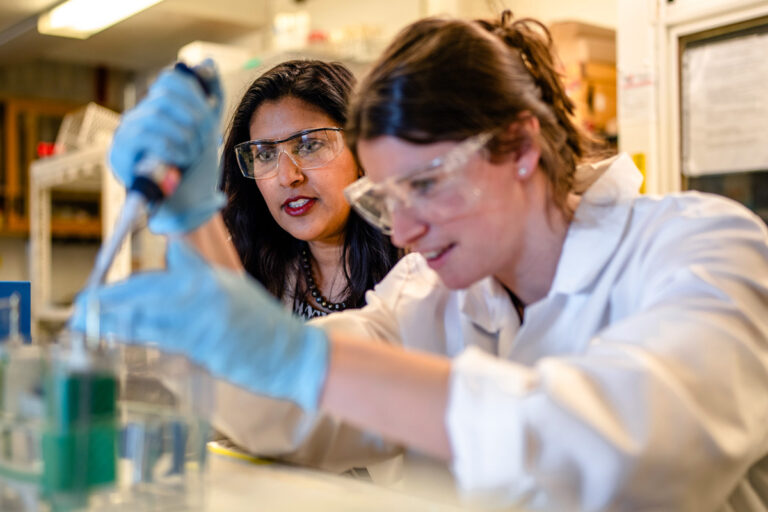In its 2022 report, The Equity-Excellence Imperative: A 2030 Blueprint for Undergraduate Education at U.S. Research Universities, the Boyer 2030 Commission wrote that “the college-going population has changed dramatically since the original Boyer report was issued in 1998, reflecting critical gains in college access. But we know institutions have to adapt to better meet a diverse set of needs for these students.”
In predicting which students successfully navigate college — and which falter — research shows that experiences in the first nine weeks on campus are crucial. To help undergraduates establish strong connections and an early sense of belonging, Marquette’s Student Success Initiative seeks to reach students early with tailored resources and in-person navigators who answer questions and make timely referrals for support services.
By better serving students, Marquette aims to boost its six-year graduation rate and improve its year 1-2 retention rate and first destination outcomes (i.e., employment and enrollment into graduate/professional school activities).
The Student Success Initiative’s goal is at once practical and ambitious: to create a frictionless academic support environment for students “from first day to first destination” as they work toward graduation/postgraduate opportunities by creating meaningful networks for students and student-centered coordination of campus resources.
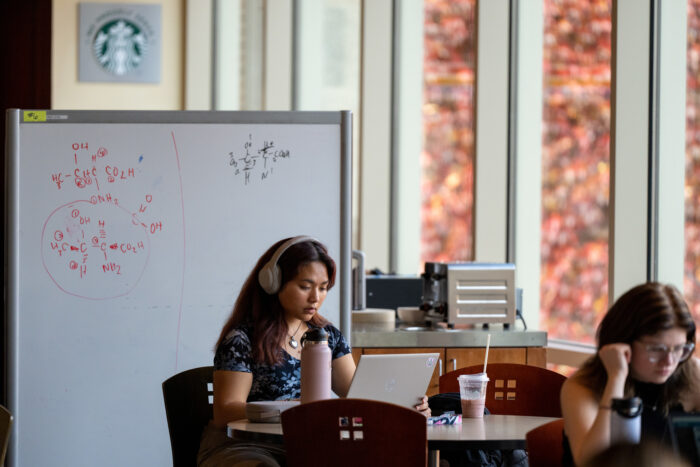
To accomplish this, the initiative’s coordinating committee, led by Dr. John Su, vice provost for academic affairs and student success, is working to build meaningful networks of mentors and peers for students, and to coordinate college-based and campuswide support in a student-centered manner that recognizes the diversity of learning styles, worldviews and ways of engaging others.
Last year, the Student Success Initiative launched a new website with a robust Roadmap for Success to help first-year students stay on course with key deadlines and milestones using an all-in-one checklist.
As it enters its second year, the Student Success Initiative is working in collaboration with colleges, the Division of Student Affairs and campuswide offices and is keenly focused on three key areas, currently in the pilot and iteration phases. In the pilot programs’ first year, the university’s year 1-2 retention rate increased 0.4% (89.5%, up from 89.1%).
- First-year experience courses to help students navigate the transition from high school to college — The Student Success Initiative team is revising the in-person navigator program for incoming students that was piloted last year. These courses are designed to ensure that students have faculty and staff mentors during their first semester. Nearly 1,300 students took part in this pilot. The Klingler College of Arts and Sciences, College of Business Administration, Diederich College of Communication, and the University Honors Program are integrating peer mentors with these courses.
- An Academic Engagement Network — This is a coordinated, campuswide effort to identify students demonstrating lower levels of academic engagement early in the semester and to ensure referrals to tutoring, mental health and other support services tailored to student needs.
- Course-based learning communities — The Student Success Initiative is currently supporting faculty and students in 13 first-year courses with historically higher rates of students receiving grades of D or F or withdrawing by providing more integrated group tutoring over the semester in collaboration with instructors.
In 2024, this work—and future Student Success plans—will be galvanized under a single roof in the heart of campus, visible and easily accessible to students.
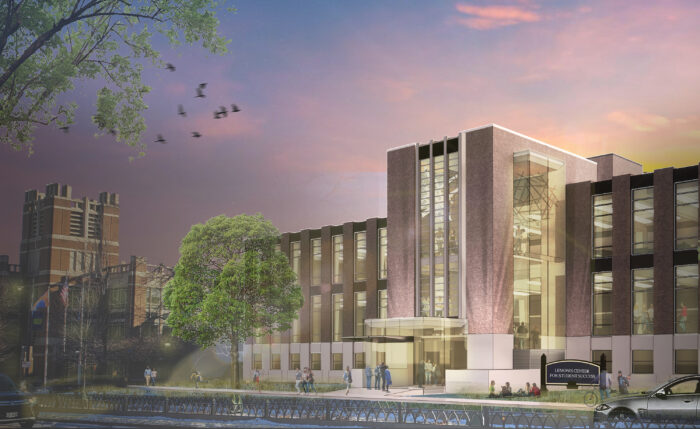
President Michael R. Lovell in February 2022 announced that alumnus Marcus Lemonis, television star and chairman and CEO of Camping World, and his wife Bobbi donated $15 million to create the Lemonis Center for Student Success, giving the university the foundation necessary to springboard its priority around student success.
The Lemonis Center for Student Success will provide wraparound services for students across all majors, academic abilities, and backgrounds to enrich and expand student opportunities from the moment they step on campus until they graduate. Building on Marquette’s Catholic, Jesuit tradition, the Lemonis Center will help students engage in thoughtful discernment that is infused in Ignatian education, emphasizing a deep sense of connection and meaningful engagement.
In recognition of the transformational gift, which will support resources, programs and the capital investment, Marquette will rename Memorial Library the Lemonis Center for Student Success and house the new center in the highly visible, centrally located space on West Wisconsin Avenue and 13th Street.
Provost Kimo Ah Yun extolled the sense of belonging that students will feel when they enter the inclusive new center, and emphasized potential financial benefits for students too. “We have an opportunity to take a lead role in lowering student debt by reducing the time it takes students to graduate,” Ah Yun says. “Our Student Success Initiative is shining a light on ways to substantially improve retention and graduation rates. The support services housed in the Lemonis Center will elevate those initiatives.”
The Lemonis Center is one of two recently announced capital projects dedicated to student well-being. President Lovell announced at his annual address in March that Marquette will fully reimagining the Helfaer Tennis Stadium and Recreation Center on the southwestern edge of campus as a comprehensive Wellness + Recreation facility. When completed in late 2024, it will bring together campus fitness and recreation facilities with the Counseling Center and the Marquette University Medical Clinic — centralizing student services that are currently dispersed across campus.
“We cannot overlook that our students’ health and wellness is important to their success,” President Lovell said at the address.
Student Success coordinating committee
Erik Albinson, director of student educational services
Dr. Tara Baillargeon, dean of libraries
Dr. Joya Crear, assistant vice president of student affairs
Dr. Sarah Feldner, dean of the Diederich College of Communication (co-chair)
Dr. Nakia Gordon, associate professor of psychology, Klingler College of Arts and Sciences
Dr. Chris Navia, vice president for inclusive excellence
Dr. Stephanie Quade, dean of students
Alix Riley, director of institutional research
Dr. Karen Robinson, interim assistant dean for graduate programs, College of Nursing
Dr. John Su, vice provost for academic affairs and student success (chair)
Brian Troyer, associate vice provost for enrollment management and dean of undergraduate admissions
